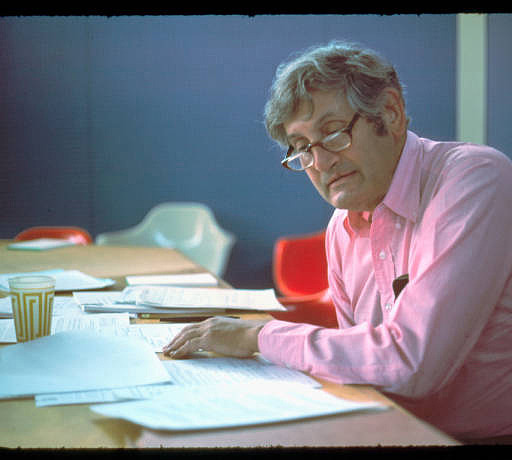Carl Kaysen 1920–2010

Carl Kaysen, who served as the Institute for Advanced Study’s fourth Director from 1966 to 1976, overseeing a decade of growth and change, died on February 8 at the age of 89. A political economist with a distinguished career in public service, he was President Kennedy’s Deputy Special Assistant for National Security Affairs from 1961 to 1963, and was most recently the David W. Skinner Professor of Political Economy, Emeritus, at the Massachusetts Institute of Technology in Cambridge, MA.
Dr. Kaysen, born in 1920 in Philadelphia, earned his M.S. in 1947 and Ph.D. in 1954 from Harvard University, where he became Professor of Economics in 1957. He was hired by the Institute to help broaden its academic scope to include topics relevant to contemporary society. One of the ways Kaysen fulfilled this mandate was to create the School of Social Science, which began as the Program for Social Change in 1968 and was formalized in 1973 as the Institute’s fourth School, in addition to the Schools of Historical Studies, Mathematics, and Natural Sciences. In 1970, Kaysen appointed the Program’s first Professor, the anthropologist Clifford Geertz (1926-2006), who influenced generations of scholars in interpretive social science. Kaysen himself served as a Professor in the School, along with Albert O. Hirschman, a development economist appointed in 1974 and currently Professor Emeritus. The School remains dedicated to the analysis of societies and social change, devoted to a multidisciplinary, comparative, and international approach to social research.
Of the creation of the School, Kaysen noted, “The opportunity to develop a new field of activity at the Institute was the challenge that meant the most to me. That the School of Social Science now exists on a firm intellectual and financial base is an accomplishment that I consider to be one of my chief contributions to the institution.”
Joan Wallach Scott, Harold F. Linder Professor in the School of Social Science, said of Kaysen, “Carl Kaysen was Director of the IAS at the time of the founding of the School of Social Science. His vision brought it into being, his leadership endowed it both financially and intellectually. He sustained it through the institutional conflicts its founding provoked. The long and rich history of the School is one of his most important legacies for the Institute.”
During his tenure, Kaysen sought to strengthen the institution’s financial standing and independence and enhanced the Institute’s endowment by $8 million. Major enhancements were made to the Institute’s campus during Kaysen’s tenure, including the construction of the Dining Hall, which continues to serve as an important daily gathering place for the entire Institute community, and the West Building, which houses the School of Social Science, as well as scholars affiliated with the School of Historical Studies. While Director, Kaysen served as a Professor in the School of Historical Studies from 1966-73, before becoming Professor in the School of Social Science.
Kaysen is survived by his wife, Ruth Butler, daughters Susanna and Jesse, and sister Flora Penaranda. A memorial in Cambridge, MA, is planned for the near future, and details are forthcoming.
About the Institute for Advanced Study
The Institute for Advanced Study is one of the world’s leading centers for theoretical research and intellectual inquiry. The Institute exists to encourage and support fundamental research in the sciences and humanities – the original, often speculative, thinking that produces advances in knowledge that change the way we understand the world. Work at the Institute takes place in four Schools: Historical Studies, Mathematics, Natural Sciences, and Social Science. It provides for the mentoring of scholars by a permanent Faculty of 29, and it offers all who work there the freedom to undertake research that will make significant contributions in any of the broad range of fields in the sciences and humanities studied at the Institute.
The Institute, founded in 1930, is a private, independent academic institution located in Princeton, New Jersey. Its more than 7,000 former Members hold positions of intellectual and scientific leadership throughout the academic world. Some 22 Nobel Laureates and 34 out of 48 Fields Medalists, as well as many winners of the Wolf and MacArthur prizes, have been affiliated with the Institute.